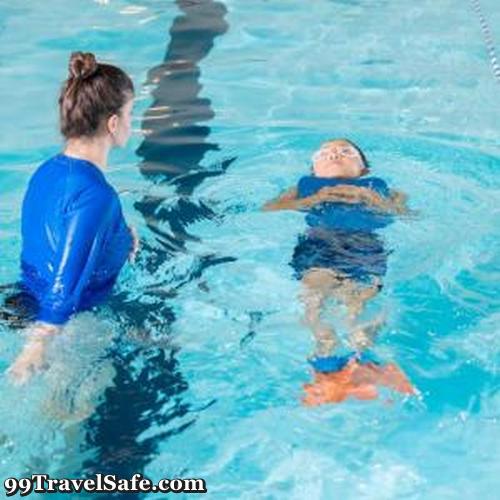

99TravelSafe.com
The Website For The Smart and Savvy Traveler
38 - Swimming Safety


Related Pages - Please Also See;
ALWAYS swim with someone - NEVER swim alone.
Swim in areas supervised by a lifeguard.
Read and obey all rules and posted signs.
Children or inexperienced swimmers should take precautions, such as wearing a personal floatation device when around the water.
Come out of the water if you are too tired, too cold, too far from safety, if there is too much sun, if there is too much strenuous activity.
Set water safety rules for the whole family based on swimming abilities (for example, inexperienced swimmers should stay in water less than chest deep).
Be knowledgeable of the water environment you are in and its potential hazards, such as deep and shallow areas, currents, depth charges, obstructions and where the entry and exit points are located. The more informed you are, the more aware you will be of hazards and safe practices.
Pay attention to local weather conditions and forecasts. Stop swimming at the first indication of bad weather.
Mostly use a feet-first entry when entering the water.
Enter headfirst only when the area is clearly marked for diving and has no obstructions.
Do not mix alcohol with swimming, diving or boating.
Alcohol impairs your judgment, balance, and coordination, affects your swimming and diving skills, and reduces your body's ability to stay warm.
Know how to prevent, recognize, and respond to emergencies.
It may be possible to revive a drowning victim who has been under water for considerable time and shows no signs of life.
Numerous documented cases exist where victims have been resuscitated with no apparent harmful effects after long immersions. Start CPR (Cardio Pulmonary Resuscitation) immediately and get the victim to the hospital as soon as possible.
Pay close and constant attention to the children you are supervising, even when a lifeguard is present, no matter how well the child can swim or how shallow the water is. Avoid distractions including cell phones.
Never leave a young child unattended near water and do not trust a child’s life to another child; teach children to always ask permission to go near water.
